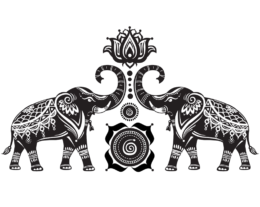Human vs. Culture: An Intricate Relationship
The relationship between humans and culture is a complex and dynamic interplay that shapes individual identities, societal norms, and collective behaviors. While humans are biological beings with innate instincts and needs, culture represents the learned behaviors, beliefs, values, and symbols that characterize a group of people. This essay explores the intricate relationship between humans and culture, examining how culture influences human behavior, the ways in which humans shape culture, and the ongoing tension between individual agency and cultural constraints.
The Influence of Culture on Human Behavior
Culture plays a pivotal role in shaping human behavior. From the moment we are born, we are immersed in a cultural environment that dictates the norms and values we are expected to adhere to. Language, for instance, is a cultural construct that not only facilitates communication but also shapes our thoughts and perceptions. The Sapir-Whorf hypothesis posits that the language we speak influences the way we think, suggesting that culture can shape cognitive processes.
Moreover, culture provides a framework for understanding social roles and expectations. In many societies, cultural norms dictate behaviors related to gender, family, and social hierarchy. For example, in collectivist cultures, individuals may prioritize group harmony and familial obligations over personal desires, while in individualistic cultures, personal achievement and self-expression may be emphasized. These cultural frameworks guide individuals in their decision-making processes and interactions with others, illustrating the profound impact of culture on human behavior.
Human Agency in Shaping Culture
While culture exerts a significant influence on individuals, humans are not merely passive recipients of cultural norms; they actively shape and transform culture. Cultural practices are not static; they evolve over time as individuals and groups challenge existing norms and introduce new ideas. This dynamic process is evident in various social movements, artistic expressions, and technological advancements that have redefined cultural landscapes.
For instance, the feminist movement has challenged traditional gender roles and advocated for women’s rights, leading to significant cultural shifts in many societies. Similarly, the rise of digital technology has transformed communication, social interaction, and even cultural production, giving rise to new forms of expression and community. These examples illustrate that while culture influences human behavior, individuals possess the agency to question, reinterpret, and reshape cultural norms.
The Tension Between Individual Agency and Cultural Constraints
Despite the capacity for human agency, the tension between individual desires and cultural constraints remains a significant aspect of the human experience. Cultural norms can be both empowering and limiting, providing a sense of belonging while also imposing restrictions on personal freedom. This tension is particularly evident in multicultural societies, where individuals may navigate multiple cultural identities and face conflicting expectations.
For example, an individual from a traditional background may feel pressure to conform to familial expectations regarding career choices or marriage, even if these choices conflict with their personal aspirations. This struggle highlights the challenge of balancing individual agency with cultural obligations, raising questions about identity, autonomy, and the role of culture in shaping our lives.
Conclusion
The relationship between humans and culture is a multifaceted and evolving interplay that shapes our identities, behaviors, and societal structures. Culture influences human behavior by providing frameworks for understanding social roles and expectations, while humans actively shape and transform culture through their actions and ideas. The ongoing tension between individual agency and cultural constraints underscores the complexity of this relationship, as individuals navigate the delicate balance between belonging and self-expression. Ultimately, understanding the intricate dynamics of human and culture is essential for fostering a more inclusive and empathetic society, where diverse voices and experiences can coexist and enrich the cultural tapestry of our world.
